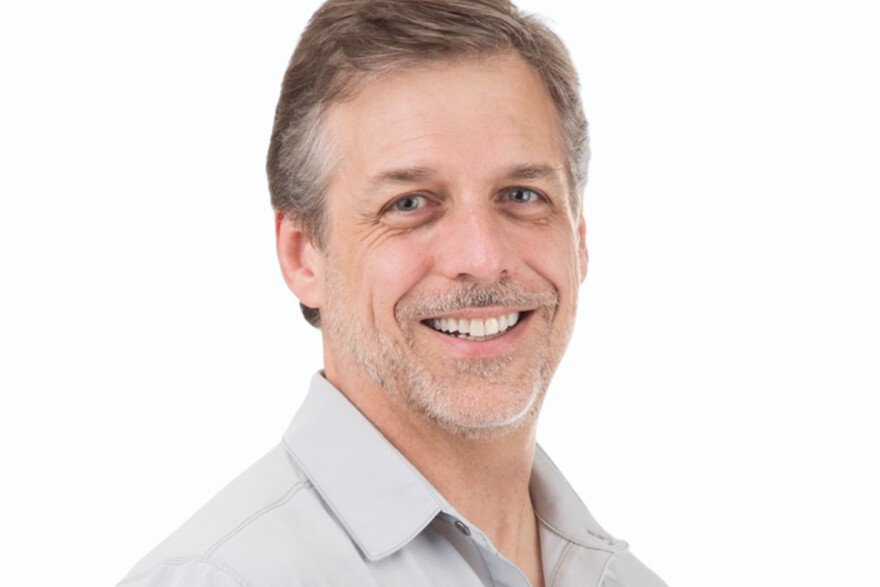Guest:
Dr. Martin Sliwinski is a Professor of Human Development and Family Studies at Penn State University, Director of the Center for Healthy Aging, and Director of the Penn State Geroscience and Dementia Prevention Consortium. He holds expertise in neuropsychological change, with a distinguished career dedicated to understanding the dynamics of cognitive aging and resilience. His work employs advanced methodologies such as ecological momentary assessment and mobile cognitive testing to capture real-time data on cognitive fluctuations and stress responses. Additionally, Dr. Sliwinski has extensive expertise in behaviors and socioemotional function, providing a comprehensive perspective on the interplay between cognitive changes and mental health.
Episode Transcript:
LINDSEY WHISSEL FENTON: What if I told you that what's good in bed might also be good for your head? I'm Lindsey Whissel Fenton with 12 Degrees on WPSU. In this episode, we're turning up the heat on intellectual wellness with some surprising research from Penn State. One study suggests that sexual satisfaction in later life is linked to better memory, and possibly a sharper mind as we age. I'm talking with Dr. Marty Sliwinski, director of the Center for Healthy Aging at Penn State, to break down the science behind the sheets. Can you start by just giving a broad-brush stroke background of what your research focuses on?
MARTY SLIWINSKI: Broadly, I look at intellectual or cognitive health and how that change is across the adult lifespan. And I look at all kinds of factors—lifestyle factors, environmental factors, biological factors.
LINDSEY WHISSEL FENTON: Lifestyle factors, biological factors. Brings me to this study that you coauthored that found that low sexual satisfaction in middle age may serve as an early warning sign for a future cognitive decline. Are we talking about better sex? Better memory?
MARTY SLIWINSKI: Not exactly right. So, what we didn't look at were the specifics of the individual sex. Like just a general sexual satisfaction? And we looked at three different domains of functioning: cardiovascular function, cognitive function, and sexual satisfaction function. We tracked how these three variables were changing together across time. And what we saw is that from year to year, if there was a decrease in one of those variables, that was pretty much accompanied by decreases in the other two. Or in contrast, if things got a little bit better in one variable, all three got a little bit better. So that gave us some insight and maybe suggests a clue that all of these domains of functioning—sexual, cardiovascular, and cognitive—bear some interconnectivity at a biological level.
LINDSEY WHISSEL FENTON: So, what does this tell us about the emotional and relational side of intellectual wellness?
MARTY SLIWINSKI: That's a great question. So, it's very well established that social connectivity, social interactions—vitally important for maintaining brain health for a number of reasons. So, people who are socially isolated and lonely show more likely to have cognitive problems.
LINDSEY WHISSEL FENTON: A lot of people almost accept that memory decline is just part of getting older. How much of it is actually influenced by the social connections, that’s, you know, the quality of our daily lives and relationships?
MARTY SLIWINSKI: I'd say most of it. A lot of what we say is aging is really disease. There are things that happen to us over the course of time, such as loss of muscle mass, for example. But that has as much to do with how we change our living. Instead of just being alive longer. So, as we get older, we may not be as active. So, what this means is as we get older, we need to be more intentional about maintaining our physical and social health.
LINDSEY WHISSEL FENTON: So, for folks in their 30s, 40s, what should we be thinking about now to stay sharp later?
MARTY SLIWINSKI: All of the things that people who are older think about, and it's kind of like when you save for retirement, you accrue the benefits of compound interest. The same for healthy lifestyles.
LINDSEY WHISSEL FENTON: That was Dr. Marty Sliwinski the director of the Center for Healthy Aging at Penn State. His work looks at how daily experiences influence brain health. This interview is part of 12 Degrees, a program and podcast from WFSU in collaboration with the Penn State Ross and Carroll Nese College of Nursing. Learn more at wellness.psu.edu. I'm Lindsey Whissel Fenton, WPSU.
[END OF TRANSCRIPT]
This is a clip from a longer conversation. To listen to the full episode, visit:




